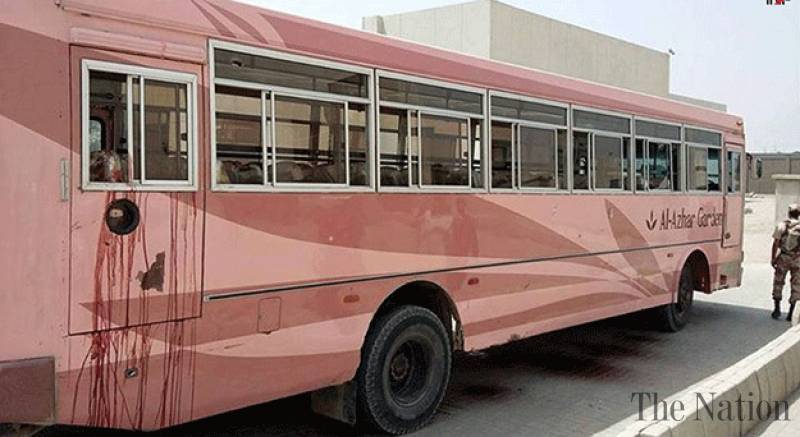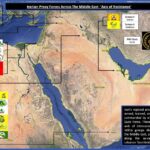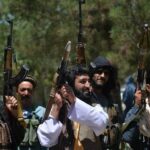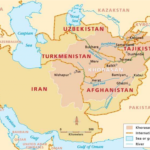The uptick in Operation Zarb-e-Azb, the announcement of the potential expansion to Baluchistan and the Karachi operation, Pakistan has become a battleground again with terrorists, mercenaries and foreign intelligence agencies playing individually and collectively against the state.
It all started on December 16, 2014 when Army Public School in Peshawar became the target of a massacre. The nation galvanized their grief into a collective anger, no longer willing to sit on the sidelines and them attack us at will, whenever and wherever they wanted.
The government repealed the moratorium on the death penalty and ordered the establishment on military courts for the hearing of cases related to terrorism. The army oversaw the immediate executions those who had been sentenced to death early in the war. This was the first step in breaking the resolve of the terrorist groups. They would no longer sit in jail cells, able to plan and orchestrate attacks, knowing that Pakistan would never deliver on their sentences.
Simultaneously, they let the beast off its chain. The Pakistan Army, Air Force and SSG Commandos were let loose against those who had terrorized the people of Pakistan. Months later, the Sindh Rangers were empowered to take down all the groups that were holding the city of Karachi hostage, much to the hue and cry of the political parties knowing that their activities were about to be exposed.
The Shift
For the past decade, the Tehreek-e-Taliban Pakistan (TTP) had focused on increasing the body count through spectacular attacks, using the international vernacular. These attacks were designed to showcase the strengths of the terrorist and inspire fear. They achieved that, but remember this is only possible when your numbers and morale are high, recruits are flowing in and the operational structure is running unhindered. The same is not true in the current situation.
Since the launch of Operation Zarb-e-Azb, the TTP have seen their numbers not only dwindle significantly, many of their operational assets have been compromised. Through a combined effort of the intelligence services, Pakistan Army and the Pakistan Air Force, bomb making and suicide vest making factories have been exposed and neutralized, ammunition depots have been eliminated and sleeper cells have been silenced throughout the country. These successes forced the TTP and their affiliated groups, Jamaat-ul-Ahrar and Lashkar-e-Islam, to join hands in an alliance with the Islamic State in Afghanistan. I use the term Islamic State in Afghanistan because the actual existence of the “new al-Qaeda” on Afghan soil in a significant number is a rumor unconfirmed through any real intelligence assets, domestic or international. It was this alliance that carried out the massacre on Army Public School in Peshawar with a proficiency and brutality that hadn’t been seen in previous attacks.
There was a marked shift in the operational strategy of the terrorist groups in Pakistan – attacks on soft targets. Many of those reading this are shaking your heads recalling the attacks on busy markets, mosques and imambargahs in the past, but those aren’t considered soft targets in the truest sense of the strategic thinking.
Soft targets are those which will fracture a nation’s resolve against the enemy forcing them to reconsider any resistance or military action.
The shift to soft targets is a reaction to the galvanized public support, the success and expansion of the military operations. When a military succeeds, the enemy will focus their attention and efforts on shaking the public support hoping to force the government to pullback.
In Karachi, while the media covered the Nine Zero raid with full vigor, the Sindh Rangers made more arrests from the TTP and extremist groups individually than all the political parties combined. The media never reported the fact that there were multiple raids nightly on terrorist hideouts and strongholds. The networks and operational structures were being broken quickly and brutally.
Then, the attack on the Ismailis happened in Karachi. Another soft target.
The Reaction
In the past few days, there have been numerous articles and op-ed pieces written about how Pakistan has become unsafe for different communities, and how they are fleeing the country in droves. This is the erosion of public support that attacks like this are designed to achieve.
Can any of the journalists, newspapers and publications who have written or published these articles honestly say that they have not written similar articles prior to the start of the focused military campaign declaring “Pakistan unsafe” by their limited mindset?
When the government was holding the army back from a full-scale operation against the terrorists, you were complaining about the safety of citizens. When the army launched the operation, you were complaining about the brutality of the attacks and the loss of livelihood to the residents. Now, that the army has achieved success in breaking the networks and operational structures of the terrorists, you are complaining about Pakistan being unsafe for specific communities.
The objective of an operational shift to soft targets is exactly what we have seen this week.
Get the opinion makers to start generating op-ed pieces decrying the safety of individuals, communities and the nation due to the military campaign. When the media starts to plant the seeds of doubt in the populace that the military isn’t able to protect the people, the pressure comes to reign the military back and abandon the successes that have been achieved.
The government condemned when it was a stream of blood. They made proclamations as it turned into a gushing river. They promised action as the river turned into an ocean. Their promises, condemnations and proclamations as hollow as their actions to stop the attacks while 80,000 innocent Pakistanis became part of the ocean of blood that drowned our country.
If we make the mistake of pulling back before the completion of the military objectives, the terrorists will return with more force, more brutality, and more spectacular attacks. They will continue to expand the scope of their attacks on soft targets knowing that they have broken the nation, rather than the other way around. They will know that our resolve isn’t strong enough to eliminate them from the nation we call Pakistan. And we will pay dearly with more innocent lives.
The options before the nation, its government and military is simple, the decision is difficult. Either we dismantle all the terrorist and extremist networks, try and execute all the commanders for their crimes and bring peace to Pakistan for the first time in decades or pull back and wait for the fury to come when they know we are too weak to fight.
My decision was made on December 16th.
When do you think you will decide?
This article originally appeared in The Nation newspaper.
Syed Khalid Muhammad, the Founder and Executive Director of CommandEleven, brings over three decades of leadership experience, guiding organizations globally in the realms of security, technology, marketing, and management. Notably, he authored "Agency Rules: Never an Easy Day at the Office," a pioneering espionage novel published in 2013. This novel holds historical significance as the first English-language espionage novel written by a Pakistani, achieving international bestseller status and currently available on Amazon.
Furthermore, Syed Khalid Muhammad has made notable appearances on several international TV channels, providing insightful analysis on security and geopolitics.
Since the establishment of CommandEleven in 2015, Khalid has expanded his expertise to encompass analysis, risk and threat assessment, and consultancy in the fields of terrorism, counter-terrorism, counterintelligence, geopolitics, and cognitive warfare. Within CommandEleven, he has successfully cultivated a comprehensive human and electronic intelligence network spanning the Indian subcontinent. Continuously growing, this network extends into various conflict zones globally, providing CommandEleven with actionable, real-time intelligence that forms the foundation of its analytical endeavors.
CommandEleven currently serves multiple clients, including corporate giants, by assisting them in analysis related to security, threat assessment, and threat mitigation strategies in Pakistan and Afghanistan.









